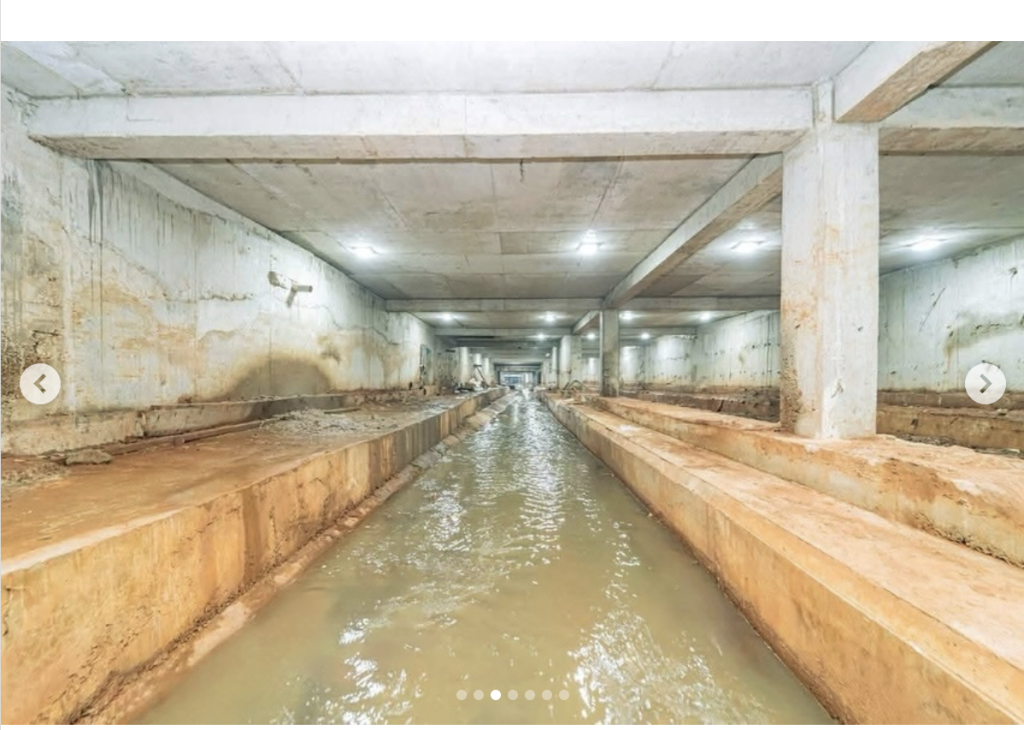The Kampala Capital City Authority (KCCA) has suspended all construction works on the Nakivubo drainage channel by businessman Hamis Kiggundu, popularly known as Ham, after technical findings linked the recent devastating floods in downtown Kampala to unauthorized and non-compliant construction activities on the channel.
In a strongly-worded letter dated 3rd November 2025, KCCA Executive Director Sharifah Buzeki wrote to Kiham Enterprises (U) Ltd, faulting the developer for commencing works without meeting mandatory planning and drainage safety conditions required before a building permit could be issued.
The letter references a conditional approval issued on 9th September 2025 which had required Ham to submit and satisfy several key hydrological, architectural, public safety, and environmental plans before any physical works could begin.
However, according to KCCA, Ham ignored the conditions and proceeded with full-scale construction.
“It has been observed that construction works for the proposed development of the Nakivubo Channel commenced without fulfilling the conditions outlined in the aforementioned approval,” the letter reads in part.
The controversy exploded after heavy rainfall on October 31th, 2025 crippled downtown Kampala. Areas around Sebaana Road, Allen Road, Owino Market, Kikuubo, and Mini Price were overwhelmed by sudden flooding, sweeping through shops and warehouses and destroying merchandise worth billions of shillings.
Following on-ground assessment, KCCA engineers concluded that the flooding was not merely weather-related, but significantly worsened by the ongoing construction along the channel.
KCCA’s Findings
The KCCA technical inspection cited three major causes directly linked to the works:
Construction debris was carelessly piled along drainage routes, blocking stormwater from flowing into the channel.
Multiple stormwater discharge inlets were sealed off due to the works, causing water to back up onto the streets.
Vertical timber props and formwork under newly built bridge slabs acted as blockages, trapping garbage and slowing water movement.
“The ongoing construction of Nakivubo Channel has sealed off several storm water discharge points… causing a back flow along some parts on Sebaana and Allen roads.”
“The vertical formwork… have worsened the situation by slowing the flow of storm water as they trap garbage and waste material.”
In plain terms — the channel could not drain the rainwater because parts of it had been physically blocked by the developer’s construction setup.
This directly contradicts Ham’s earlier public claims that once completed, the project
Suspension
The Executive Director’s instructions are unequivocal:
“Suspend all ongoing construction activities” until conditions are met and a building permit is granted.
Remove all timber props, culverts, and formwork currently obstructing stormwater flow.
Clear all construction debris and open all drainage inlets that were sealed.

Develop a Project Management Plan to be supervised by KCCA engineers before works can resume.
The letter concludes by assigning a KCCA monitoring team to supervise compliance.
Questions
This suspension intensifies the longstanding debate around the Nakivubo redevelopment. While Ham’s transformation of the stadium and surrounding commercial spaces has been marketed as a symbol of “modern urban development,” planners, drainage experts, and environmentalists have repeatedly warned that altering a primary city water channel without full hydrological modeling and staged drainage management is dangerous.
Documents now show that:
The project did not receive final building approval.
KCCA repeatedly wrote to Kiham Enterprises seeking compliance, which was reportedly not provided.
Construction moved forward regardless, raising questions about regulatory oversight, political shielding, and developer impunity.
Accountability
For the thousands of traders who lost goods, the technical findings confirm what they have been saying for weeks:
“They blocked the water and now our businesses have been destroyed. Someone must be held responsible,” said a trader in Arua Park.
KCCA’s suspension is therefore not only an administrative action — it may become the basis for legal claims and compensation demands.
A Broader Lesson About Development Without Regulation
What is unfolding at Nakivubo is not merely a dispute between a developer and a city authority. It is a high-stakes test of whether urban infrastructure in Kampala will follow law, science, and engineering — or the will of wealthy private actors.
Kampala has seen this story before: short-term construction gains producing long-term disaster.
This time, KCCA’s tone suggests the city may be drawing a line.
Whether Ham complies or challenges the suspension will determine not just the future of Nakivubo Channel, but the credibility of Kampala’s development governance itself.